9 Entryway Rug Ideas That Prove How You Use One Can Make or Break Your Space
A rug in your home's entrance can be an unexpected star if you put thought into the style and placement, say these experts
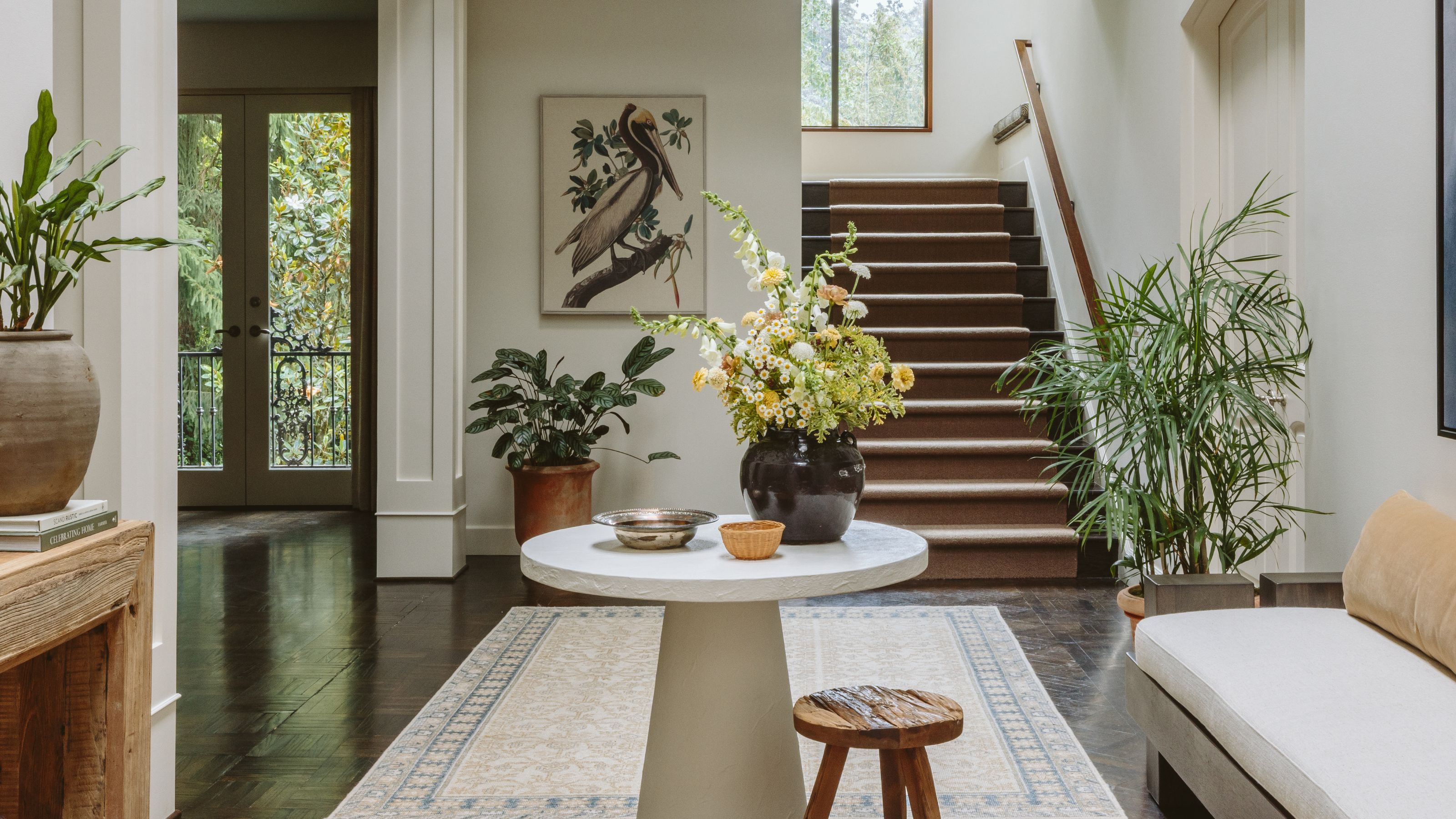

As the saying goes, first impressions matter. That might mean showing up to a party with a host present in hand—or kicking off a meal with excellent appetizers—but when it comes to your home? It’s all about wowing the crowd with a gorgeous entryway. Whether you’re retreating after a long day at the office or welcoming guests for the first time, your entryway rug is typically one of the first things people notice about your house. It sets the foundation for a home that’s as bold and beautiful as the people who live there.
Many of the best entryway ideas are things such as punchy paint colors, illuminating light fixtures, and stylish-yet-savvy storage solutions, but you shouldn’t overlook what's underfoot. While an entryway rug might seemingly serve a practical purpose — it can keep you from tracking dirt and debris into the rest of your home — it can also give your grand entrance a floor-to-ceiling appeal.
Ready to take your design style to depths? We tapped a handful of designers to share their favorite entryway rug ideas. From cool cowhides to woven wonders, here’s your sign to always look…well, down.
1. Create Cohesion
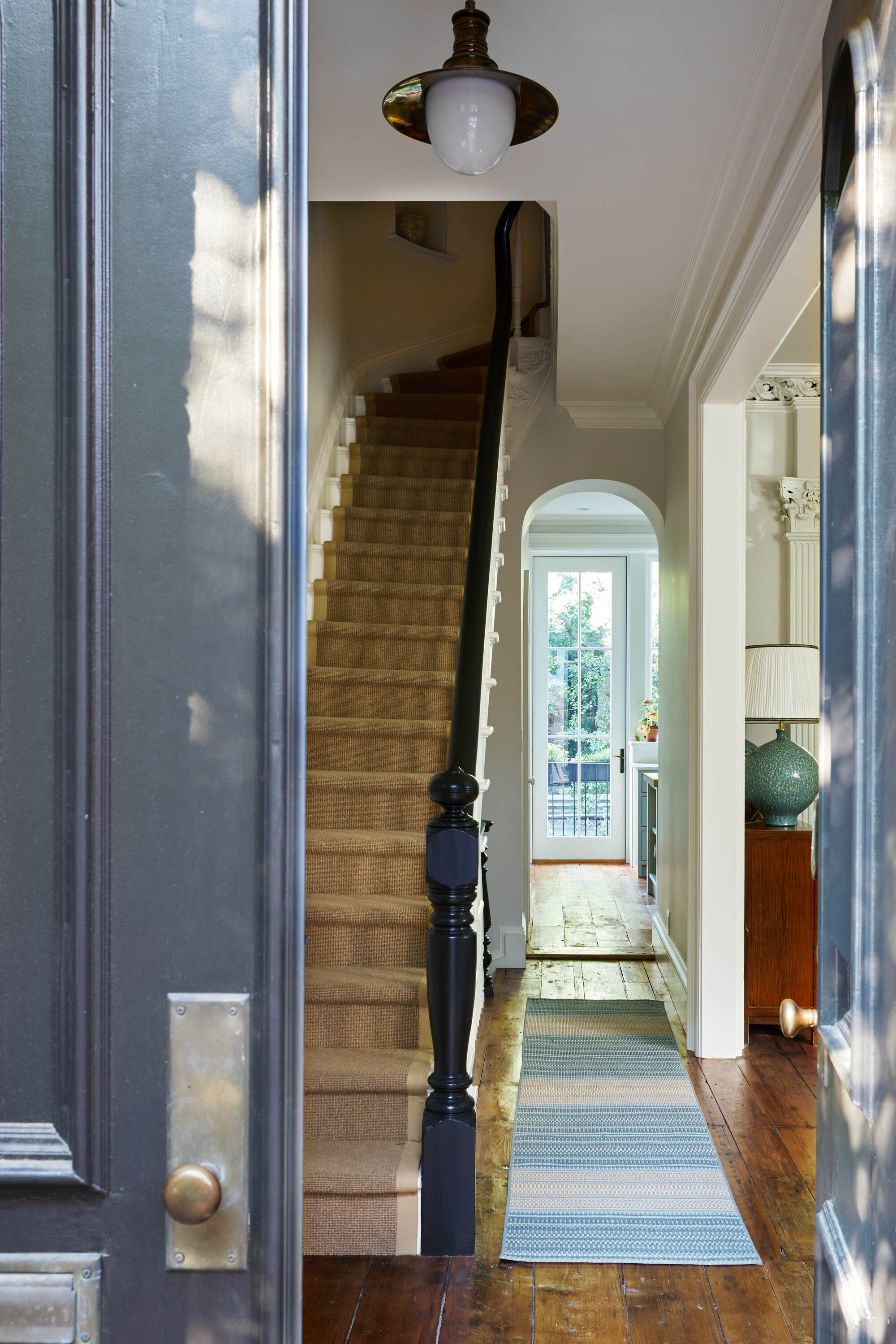
With so many patterns and colors to choose from, finding the perfect entryway rug can seem easier said than done. If you’re looking for a place to start your search, let the rest of your home serve as inspiration.
“I love this striped runner from Elizabeth Eakins that we did at my Cobble Hill project in Brooklyn,” designer Rebecca Amir says. “The runner fades from different blues to greens and sets the tone for the color palette on the parlor level.”
Before you reach those cool-toned spaces, the bright blue acts as a visual exclamation point, energizing the otherwise neutral small entryway. Little do guests know, there’s so much more where that came from…
2. Opt for Earthy
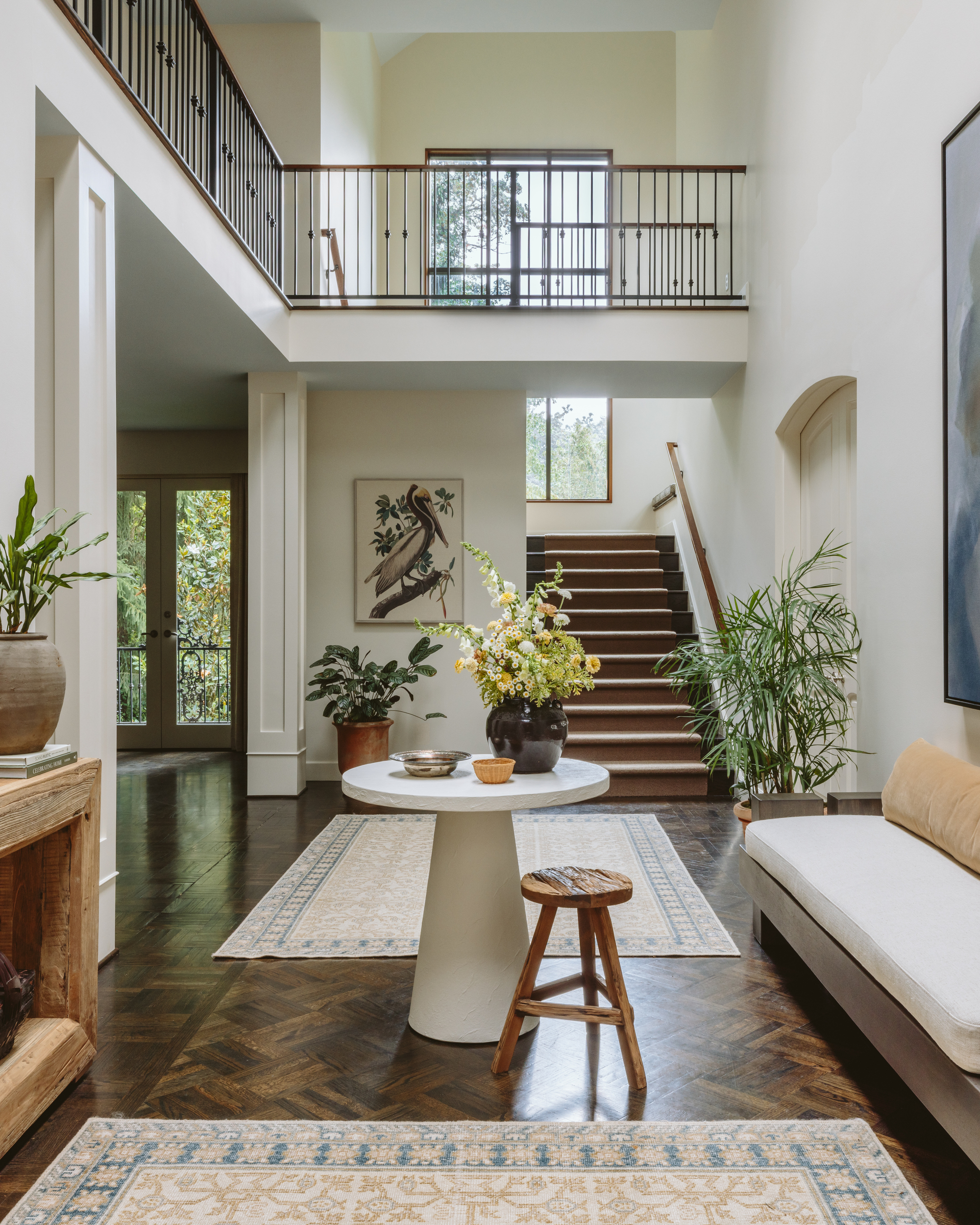
The entryway is the threshold of the house, bridging the gap from the great outdoors and the great indoors. So, why not bring the outside in with an earthy-hued rug? For this project, which brings a whiff of Mediterranean influence to the property’s storied history, Noelle Harvey of Sunday House Design sought to “create a warm and earthy vibe to bring a sense of coziness.”
“Not only does this pair of rugs warm up the feel of the house, but the pattern and design also helps them stand up to the fall weather,” the Oregon-based designer explains. When paired with a healthy plant collection and wooden furniture, the rug’s blue and yellow brings a touch of coastal interior design and transports us to a restful afternoon spent at the seaside.
3. A Textural Touch
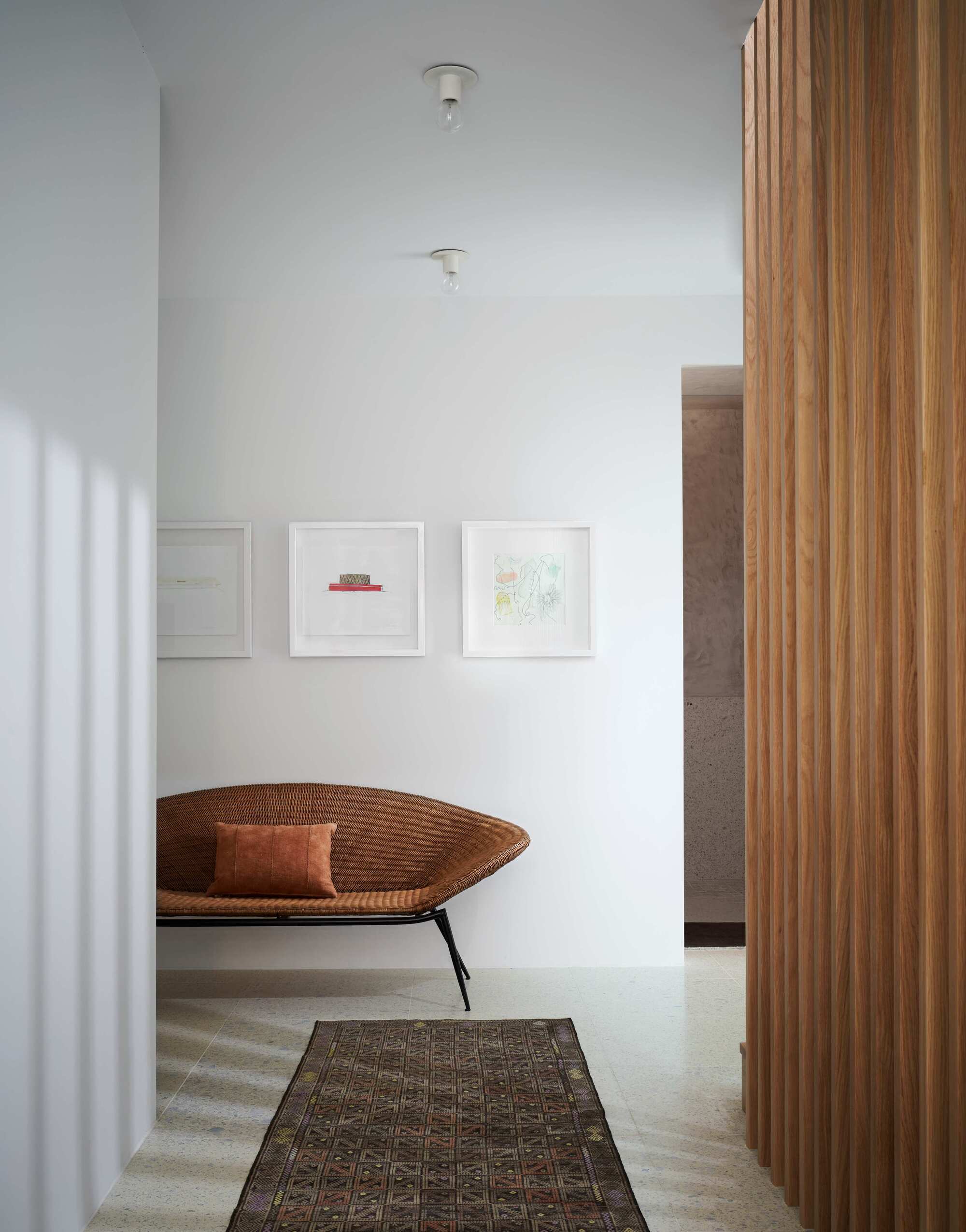
We love a neutral color scheme as much as the next person, but we have to admit they can be a little risky in the entryway. Without the proper know-how, a pared-back palette can make a foyer feel—and set a “blah” tone for the rest of the home. Our advice: Experiment with texture, as seen in this space from Houston designer Margaret Naeve Parker.
Not only do the wooden partition and woven settee offer plenty of visual intrigue, but the detailed rug repeat also takes on the look of another texture. The result? An entryway that’s sleek, but not snoozy.
4. Flaunt Your Foyer’s Form
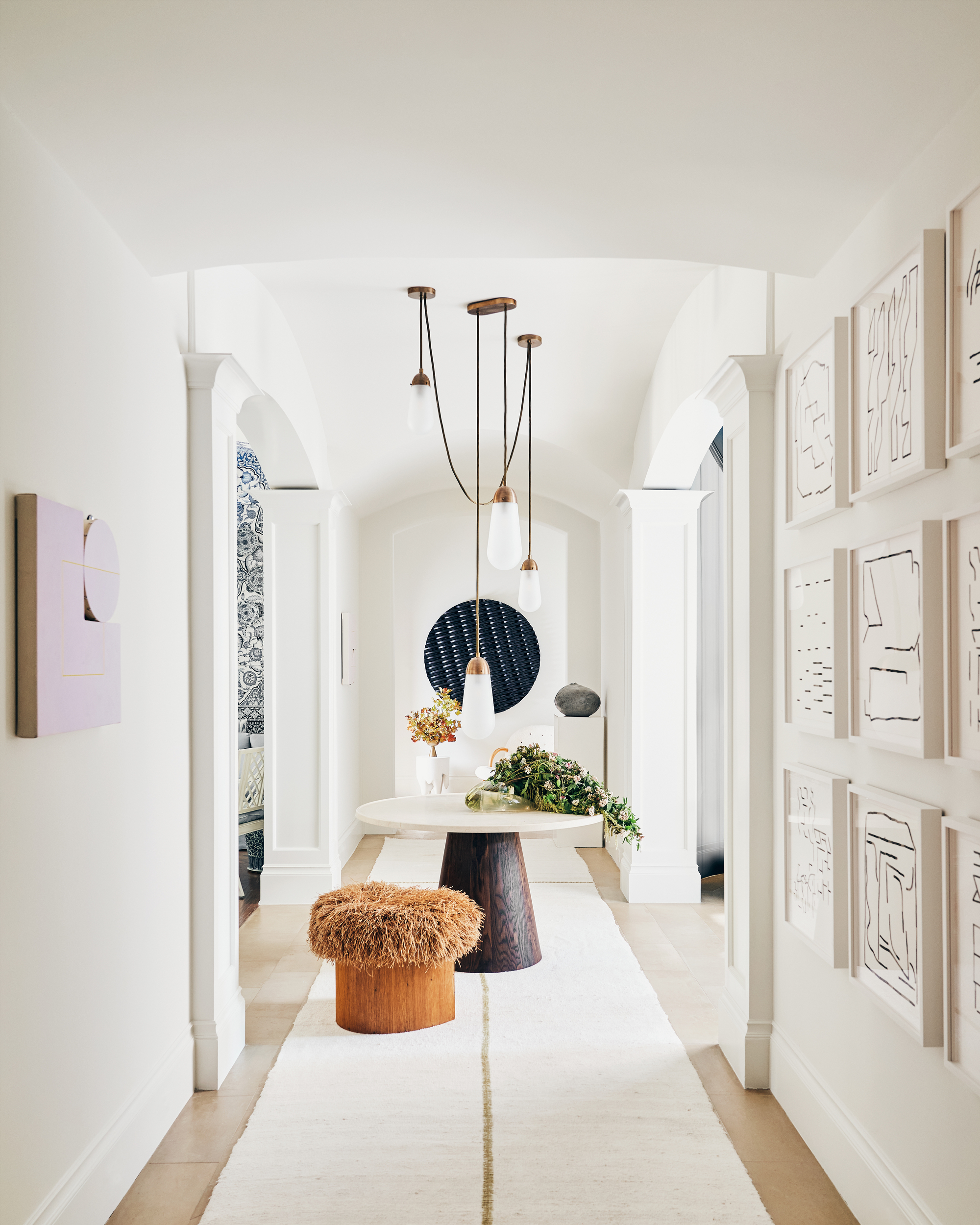
Entryways come in a handful of shapes and sizes, but if you want to add a little bit of drama to your space, choose a rug that highlights your foyer’s form.
Since this highlight is long and relatively slim, designer Margaret Naeve Parker highlighted the galley-like layout by adding a long runner to the mix. The thin tan stripe highlights the room’s layout and creates the illusion of a longer, even grander entrance — a trick that can make even a small entryway look bigger.
5. Wow With Woven
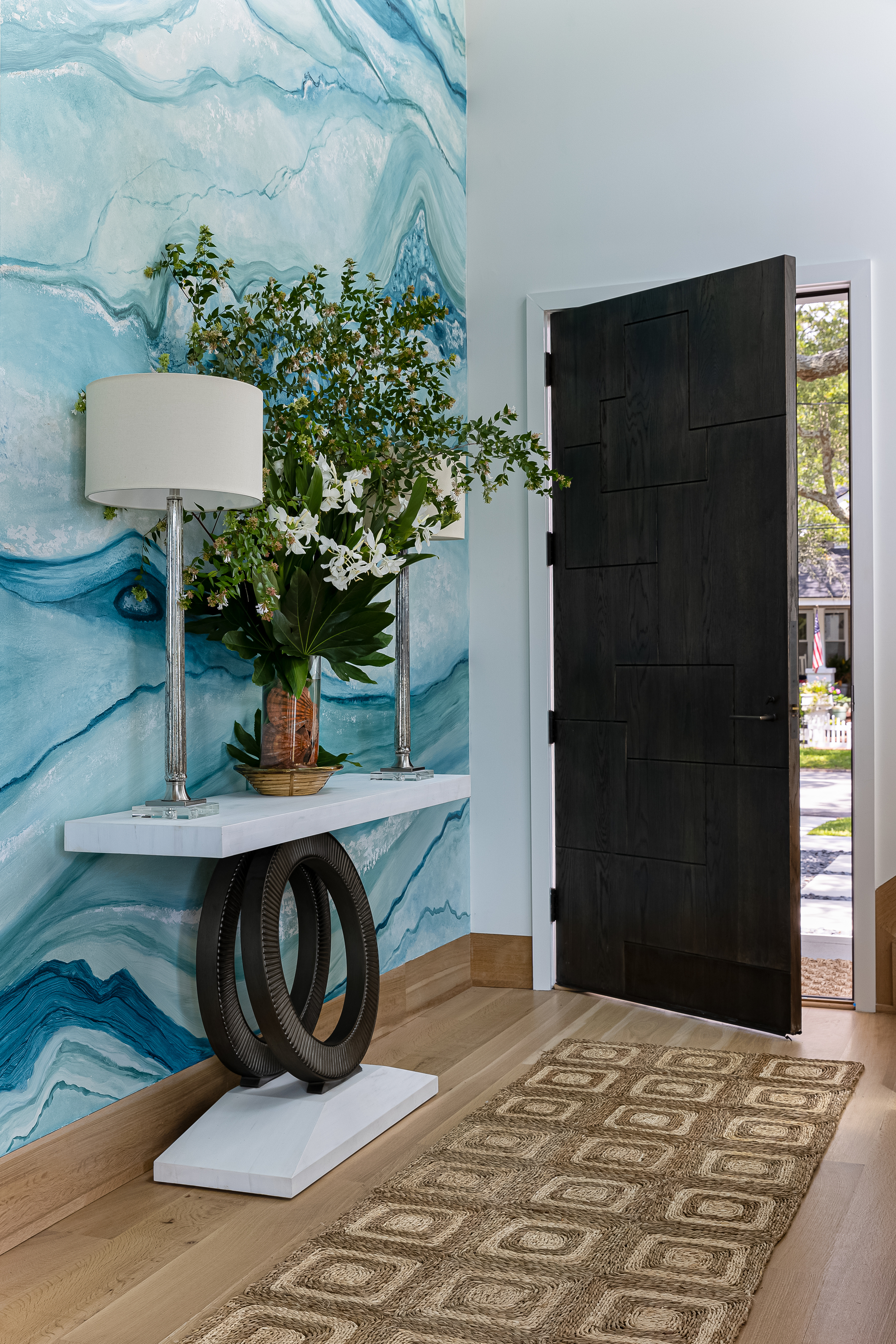
When it comes to choosing the perfect entryway rug, designer Grey Joyner says balance is key. “If the walls are bright and patterned, I like to choose a rug that grounds the space and doesn’t distract from whatever is happening in the room,” she explains.
Of course, that doesn’t mean decorating with rugs in an entryway should be one-note and… well, boring. “I also like to incorporate as much natural texture as possible because it brings in a warmth to a space without being overwhelming,” she adds.
Grey struck the perfect balance in this bold hallway. The woven runner acts as a neutral against the agate-esque wallpaper, but the rug’s geometric pattern makes a stealth statement.
6. Coordinate Your Color Palette
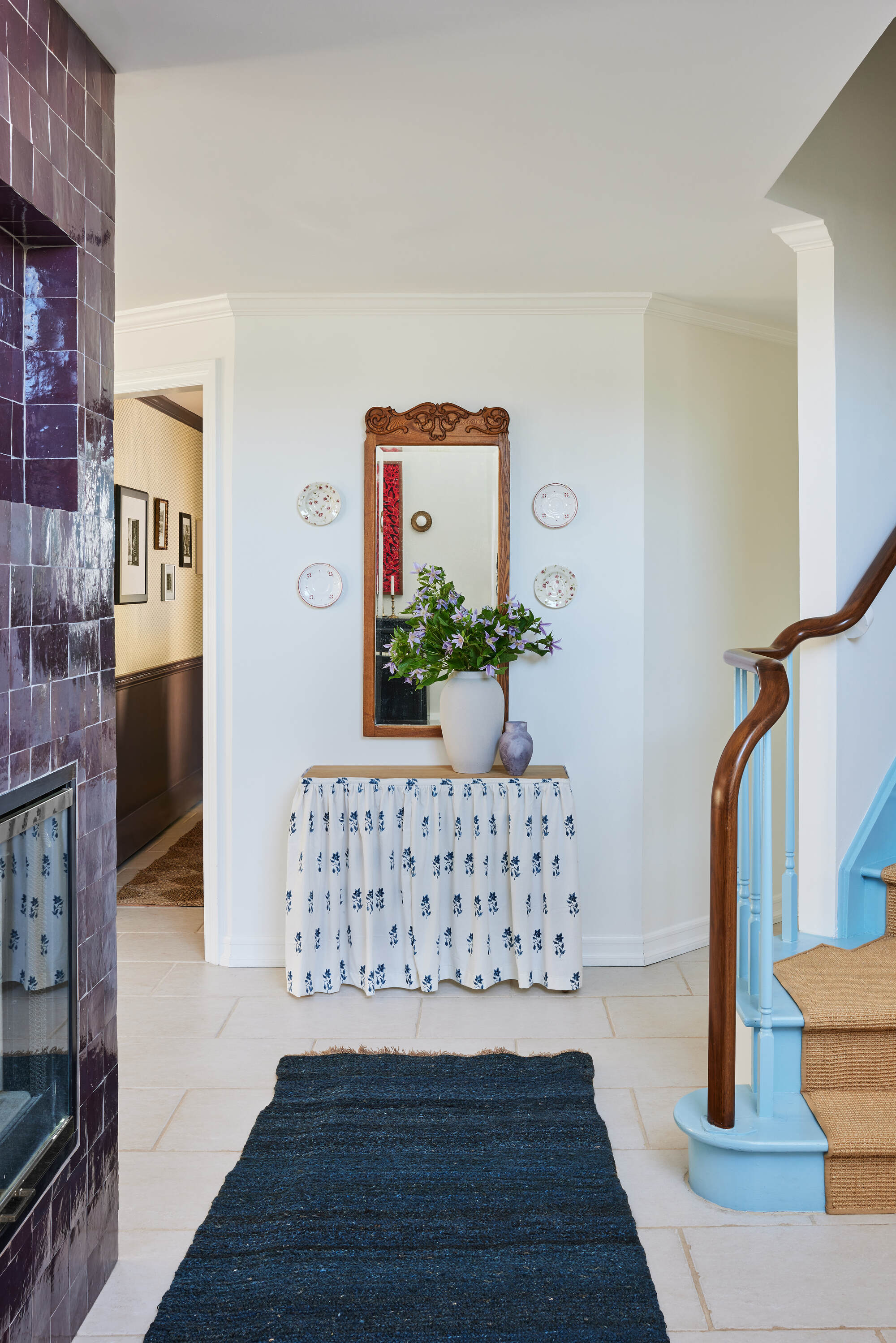
For an entryway rug idea that’s a touch traditional, double down on your room’s color story. From the eggplant tiles, to the robin’s egg staircase, to the lapis flowers on the nearby table cloth, cool tones are all the rage in this classic entryway.
Instead of opting for a pop of color, Molly Torres Portnof of DATE Interiors kept things consistent by adding a blue rug. The result? A jolt of color that’s easy on the eyes.
7. Lived-In Layers
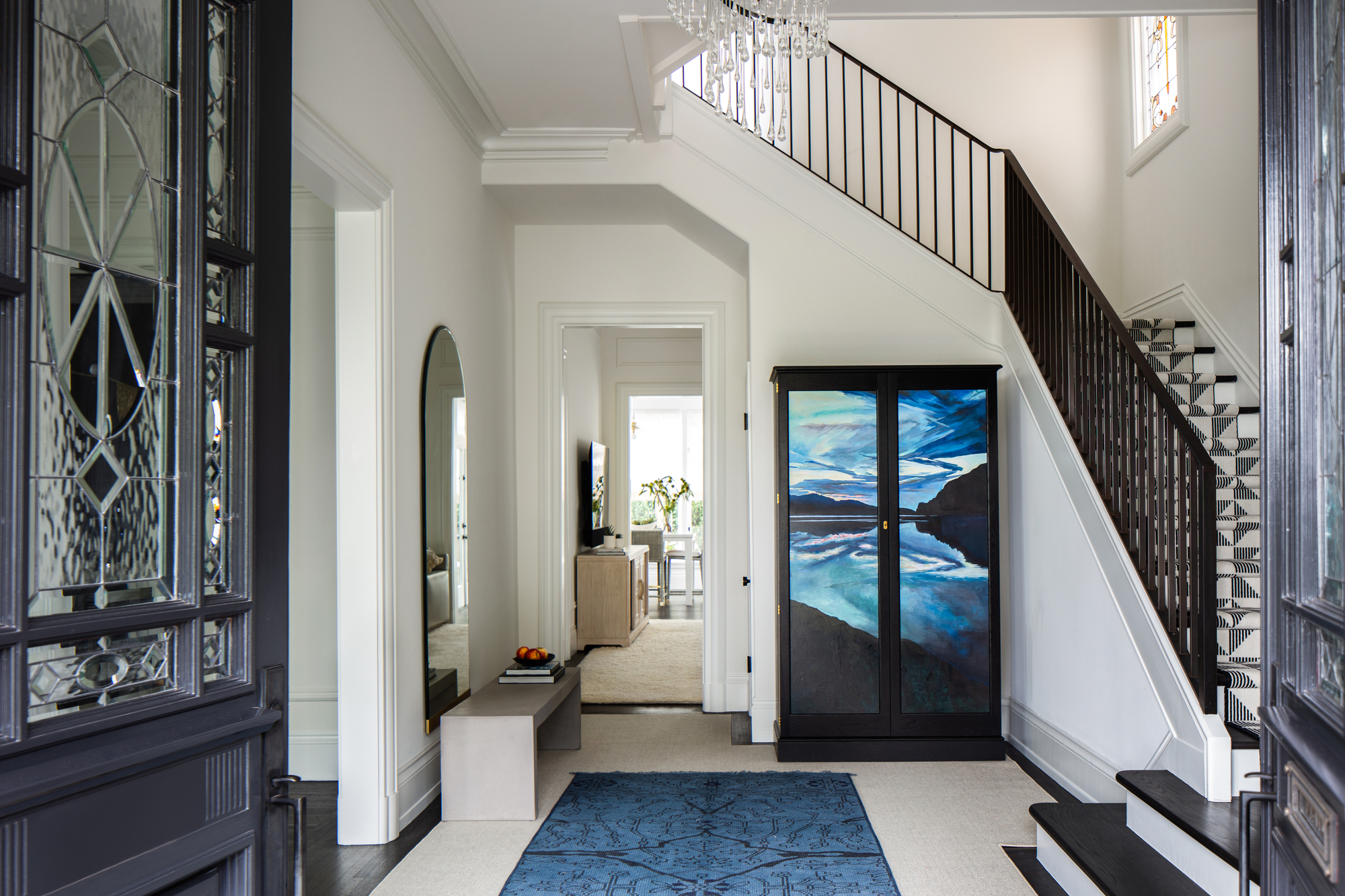
Why settle for one entryway rug when you can have two? San Francisco-based designer Emilie Munroe got creative by layering rugs — a wide runner over a larger area rug.
Since there’s a fine line between lived-in and lopsided, a layered rug look can be tough to pull off. Emilie’s secret, however, lies in the color palette. The neutral area rug acts as a blank canvas—giving that midnight blue runner the attention it deserves. Another thing to love? Since the cream color matches the rug seen in the adjacent room, they create the illusion of an open, never-ending entryway.
8. Double Up
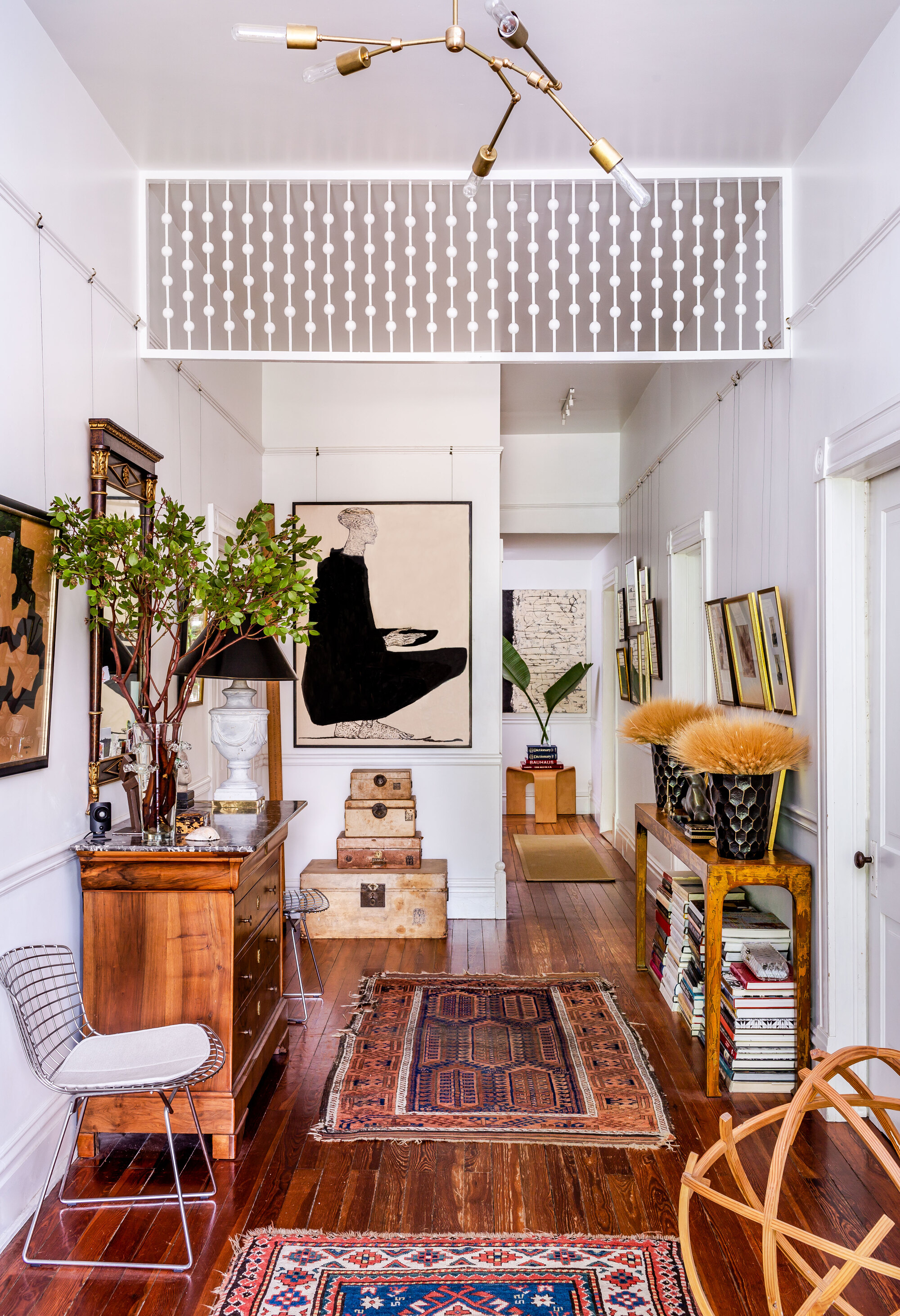
If layering rugs on top of each other isn’t your thing, try placing them side by side. The rugs seen in this cozy project, which was designed by Laura Jenkins, are vintage family pieces that were passed down. “They add just the right amount of color and pattern to a more neutral backdrop,” she explains.
Though this side-by-side setup is a great way to utilize antiques, it’s also a sound idea for those who are working with an extra-long foyer or as a hallway idea. After all, there’s strength in numbers.
9. Cowboy Cool
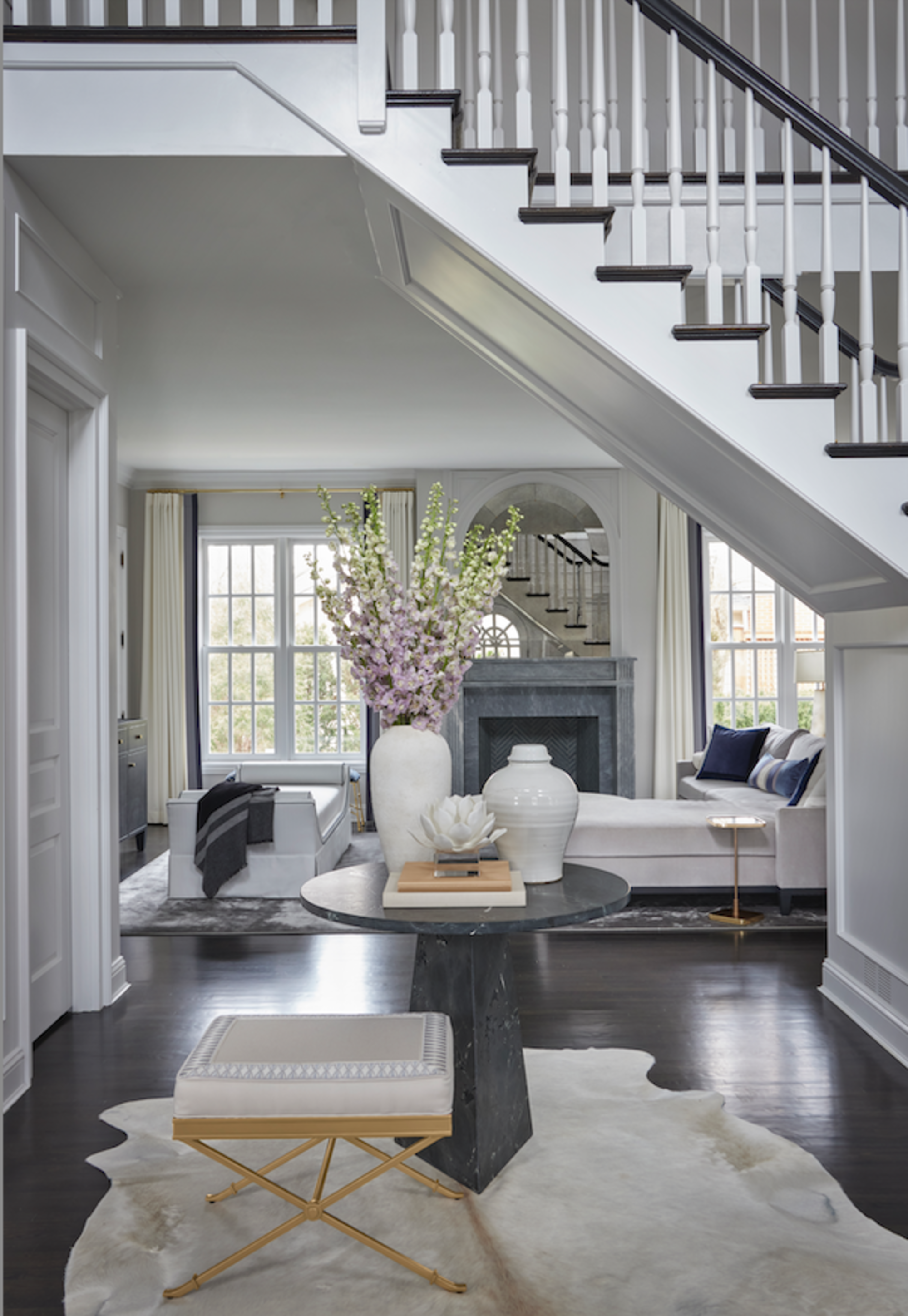
Cotton, wool, or jute rugs might be status quo, but Brynn Olson is ready for you to think outside of the box.
Topping her list of entryway rug wins? “Real cowhide rugs are incredibly durable and easy to clean,” she says. “They add a nice touch of texture, which always pairs lovely with smooth marbles and metals.”
Here, the round hide looks interesting, anchors the round entryway table, and separates the foyer from the rest of the house. A win-win? Yeehaw.
FAQs
What Kind of Rug Goes in an Entryway?
While style, color, and pattern lies in the eye of the rug-holder, fit is everything. As a general rule of thumb, you want to find a rug that is conducive with your entryway’s natural layout. For example, anyone who has a galley entryway will want to look for a runner that can seamlessly work with its long, slim shape. Meanwhile, those who are working with an itty, bitty space might find a small mat the perfect match. The size of your rug will vary by the size of your space, but just make sure it covers where you (and guests) will be walking.
Pile is another thing to consider: The thickness ultimately boils down to personal preference, a low-pile rug might be easier to maintain and vacuum for years to come. And if you can find a stylish, proportionate rug that’s easy to clean or even machine-washable? Even better.
Be The First To Know
The Livingetc newsletters are your inside source for what’s shaping interiors now - and what’s next. Discover trend forecasts, smart style ideas, and curated shopping inspiration that brings design to life. Subscribe today and stay ahead of the curve.

-
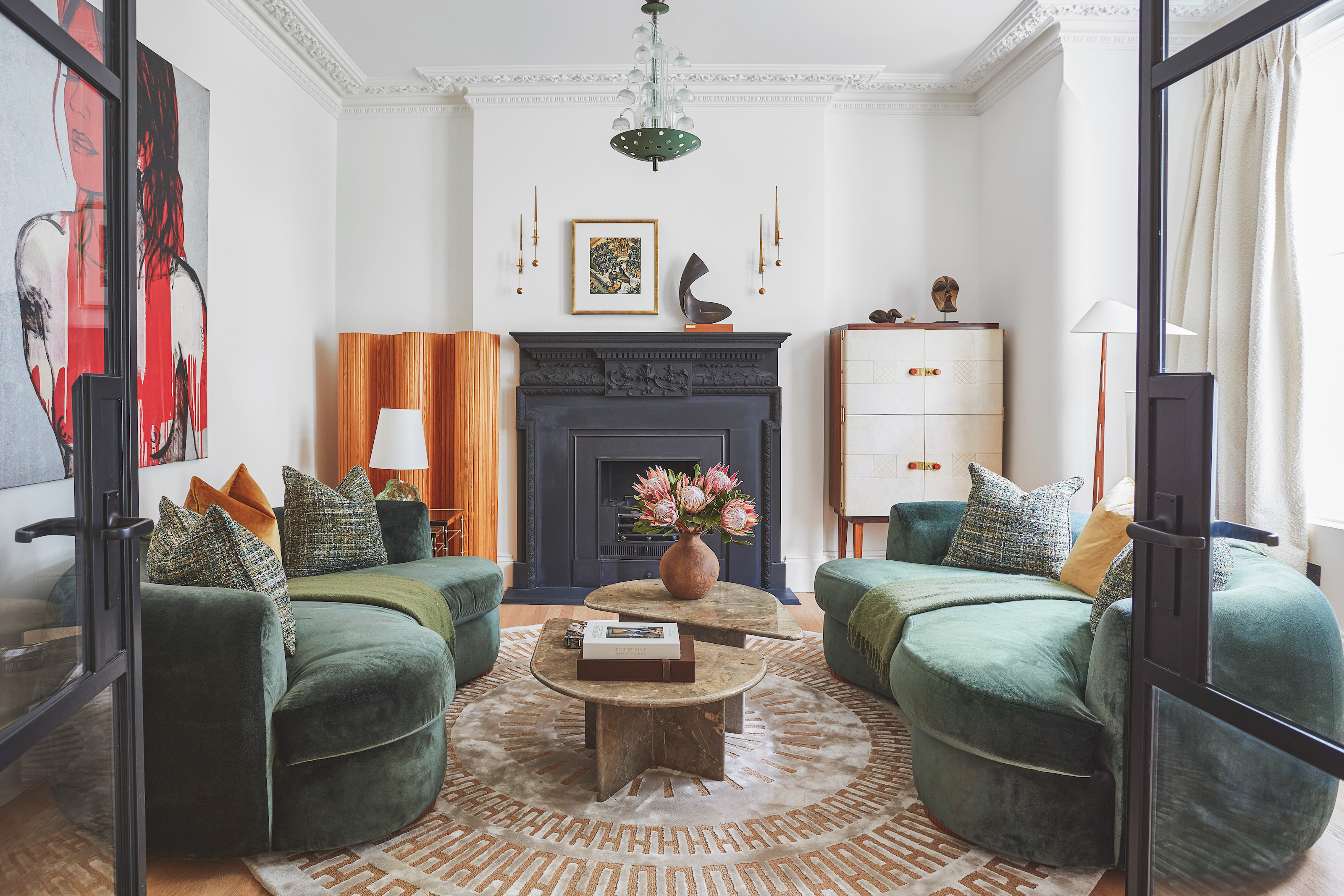 The 'New British' Style? This Victorian London Home Embraces Its Owners' Global Background
The 'New British' Style? This Victorian London Home Embraces Its Owners' Global BackgroundWarm timber details, confident color pops, and an uninterrupted connection to the garden are the hallmarks of this relaxed yet design-forward family home
By Emma J Page
-
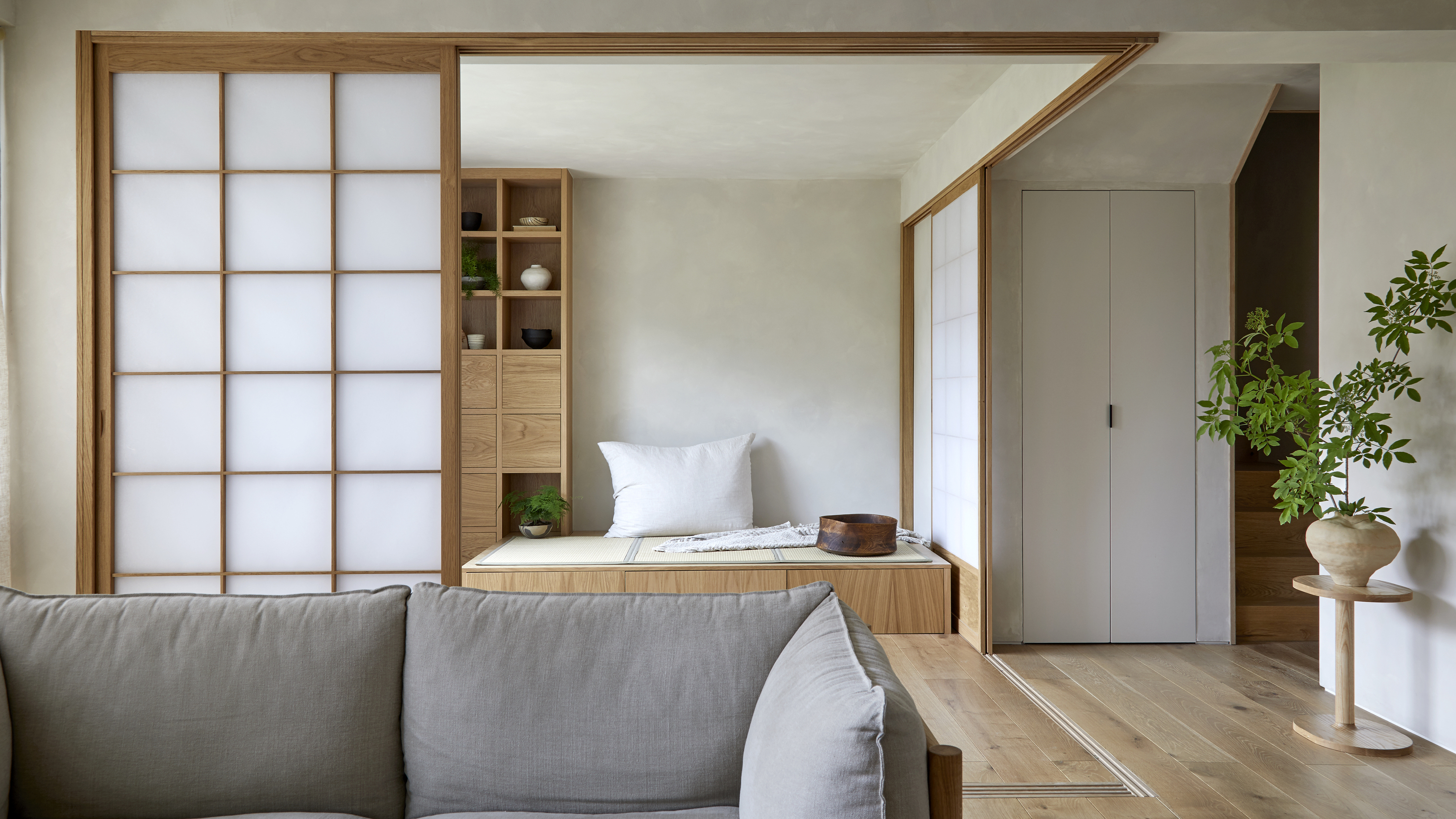 Muji Living Room Ideas — 5 Ways to Harness The Calming Qualities of This Japanese Design Style
Muji Living Room Ideas — 5 Ways to Harness The Calming Qualities of This Japanese Design StyleInspired by Japanese "zen" principles, Muji living rooms are all about cultivating a calming, tranquil space that nourishes the soul
By Lilith Hudson